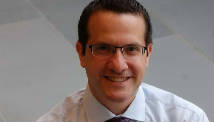Editorial: "Give video games a sporting chance"
EVERY sport has its idols and superstars. Now video gaming is getting them too. Professional gaming, or e-sports, exploded in popularity in the US and Europe last year.
The scene has been big in Asia - particularly South Korea - for about a decade, with top players such as Lim Yo-Hwan earning six-figure salaries and competing for rock-star glory in Starcraft tournaments that attract audiences in the hundreds of thousands.
The phenomenon is taking off in the West partly because of improved video-streaming technology and large financial rewards. Video games are becoming a spectator sport, with certain players and commentators drawing massive online audiences.
And where people go, money follows. The second world championship of League of Legends - a team-based game in which players defend respective corners of a fantasy-themed battle arena - was held in Los Angeles in October. The tournament had a prize pool of $5 million for the season, with $1 million going to winning team Taipei Assassins, the largest cash prize in the history of e-sports.
League of Legends has also set records for spectator numbers. More than 8 million people watched the championship finals either online or on TV - a figure that dwarfs audience numbers for broadcasts of many traditional sports fixtures.
But gamers don't need to compete at the international level to earn money. Video-streaming software like Twitch makes it easy for players to send live footage to a website, where the more popular ones can attract upwards of 10,000 viewers - enough for some to make a living by having adverts in their video streams. Gamers can go pro without leaving their homes.
Currently, e-sports productions are handled by gaming leagues - but that could soon change. Last November saw two moves that will make it even easier to reach a global online audience. First, Twitch announced it would be integrating with Electronic Arts's Origin service, a widely used gaming platform. This would let gamers stream their play at the click of a button, making it easy for people around the world to watch.
Also in November came the latest release from one of gaming's biggest franchises, Call of Duty: Black Ops 2, which has the ability to live-stream via YouTube built into the game itself. Another feature allows the broadcast of in-game commentary for multiplayer matches.
"I think we will reach a point, maybe within five years, where spectator features are a necessity for all big game releases," says Corin Cole of e-sports publishing company Heaven Media in Huntingdon, UK.
David Ting founded the California-based IGN Pro League (IPL), which hosts professional tournaments. He puts the popularity of e-sports down to the demand for new forms of online entertainment. "After 18 months, IPL's viewer numbers are already comparable to college sports in the US when there's a live event," he says. "The traffic is doubling every six months."
Ting sees motion detection, virtual reality and mobile gaming coming together to make physical exertion a more common aspect of video games, blurring the line between traditional sport and e-sports. "Angry Birds could be this century's bowling," says Ting.
If you would like to reuse any content from New Scientist, either in print or online, please contact the syndication department first for permission. New Scientist does not own rights to photos, but there are a variety of licensing options available for use of articles and graphics we own the copyright to.
All comments should respect the New Scientist House Rules. If you think a particular comment breaks these rules then please use the "Report" link in that comment to report it to us.
If you are having a technical problem posting a comment, please contact technical support.















